1896 Royal Coronation Medal Nicholas II & Alexandra Feodorovna (Alix of Hesse)
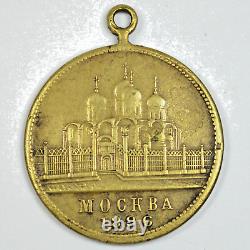
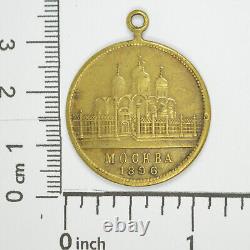
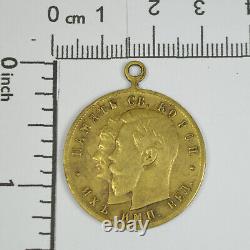
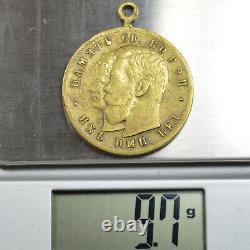
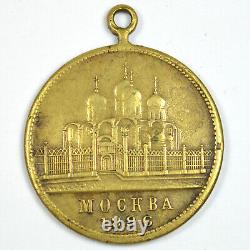
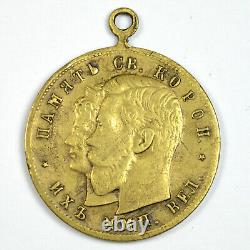

Obverse Portrait of Emperor Nicholas II & Alexandra Feodorovna. Translation: In commemoration of the holy coronation of their imperial majesties Reverse The Cathedral of the Dormition in the Kremlin. 1896 The Coronation of the Russian monarch was a religious ceremony of the Russian Orthodox Church, the state church of the Russian Empire, in which the Emperor of Russia (generally referred to as the Tsar) was crowned and invested with regalia, then anointed with chrism and formally blessed by the church to commence his reign. Although rulers of Muscovy had been crowned prior to the reign of Ivan III, their coronation rituals assumed overt Byzantine overtones as the result of the influence of Ivan's wife Sophia Paleologue, and the imperial ambitions of his grandson, Ivan IV. These elements remained, as Muscovy was transformed first into the Tsardom of Russia and then into the Russian Empire, until the abolition of the monarchy in 1917.
Since Tsarist Russia claimed to be the "Third Rome" and the replacement of Byzantium as the true Christian state, the Russian rite was designed to link its rulers and prerogatives to those of the so-called "Second Rome" (Constantinople). While months or even years could pass between the initial accession of the sovereign and the performance of this ritual, church policy held that the monarch must be anointed and crowned according to the Orthodox rite to have a successful tenure.
As the church and state were essentially one in Imperial Russia, this service invested the Tsars with political legitimacy; however, this was not its only intent. It was equally perceived as conferring a genuine spiritual benefit that mystically wedded sovereign to subjects, bestowing divine authority upon the new ruler. As such, it was similar in purpose to other European coronation ceremonies from the medieval era. Even when the imperial capital was located at St.
The last coronation service in Russia was held on 26 May 1896 for Nicholas II and his wife Alexandra Feodorovna, who would be the final Tsar and Tsaritsa of Russia. Item's details and condition as presented in the photos. I'm always willing to answer any questions or special inquiries so do not hesitate to contact me.Thank you for your interested in my collections! I hope you find that something special you're looking for!

